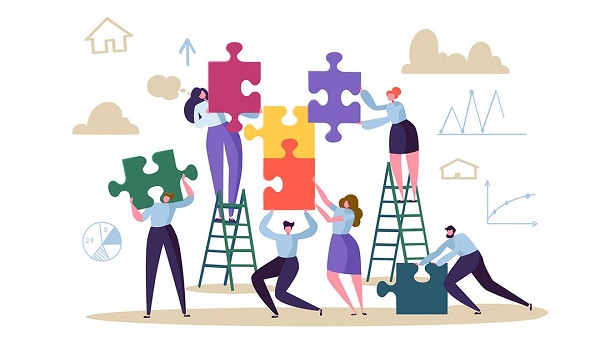HGC Global Communications (HGC), DCConnect Global, and QLC Chain under the auspices of the MEF have collaborated successfully in a proof-of-concept that leverages MEF lifecycle service orchestration application programming interfaces (API) with distributed ledger technology to create smart bilaterals for end-to-end ordering, billing and settlement of data services.
As part of the MEF’s new commercial and operational framework, this proof of concept is a foundational step to demonstrate how to overcome cross-partner business process integration challenges across the telco service value chain that cost the industry hundreds of millions of dollars annually.
Telecom service providers invest significant amounts on systems and resources for external-facing commercial transactions with their partners. When service providers partner establishes a new commercial relationship/bilateral, they usually require customized interfaces to integrate their systems and processes. And this effort needs to be repeated for every bilateral entered.
Even with a smooth integration, these systems of record typically do not have a “Golden Source” for the shared commercial state of the orders and considerable inefficiencies exist throughout the order-to-cash value chain. As a result, time and money is spent on reconciliations, disputed prices or bills, lost orders, and sometimes even legal actions. Worse still is the damage to the commercial relationship.
The MEF 3.0 proof of concept was raised to demonstrate a viable solution to address “implement once, use many” process integration for data services. The core of the concept and the associated in-development-standard MEF W114 are “Smart Bilaterals.” Smart Bilaterals are distributed ledger technology-based smart contract systems that enable an immutable, self-executing commercial state between two or more service providers by establishing a shared commercial state that ensures the correctness of all generated commercial documents; commercial documents are generated only when they conform to the Golden Source.
Using QLC Chain’s billing platform that uses standard MEF LSO Sonata APIs and standardizable Smart bilateral protocols, the partners successfully demonstrated:
- Only a one-time onboarding is required to conduct business with any other service provider on the same network.
- The automation of the order-to-cash value chain for data services transactions in near real time. It is a secure and automated system-to-system integration for ordering based on available published inventory and price, as well as billing, invoicing and settlement without the need for reconciliation. Each transaction / order is managed end-to-end in near real time.
Bsed on the positive outcomes, HGC, DCConnect, QLC and MEF will continue their joint path to drive DLT-LSO API standards and start bringing on board partners as well as other MEF members to enjoy the benefits of the smart bilaterals.










